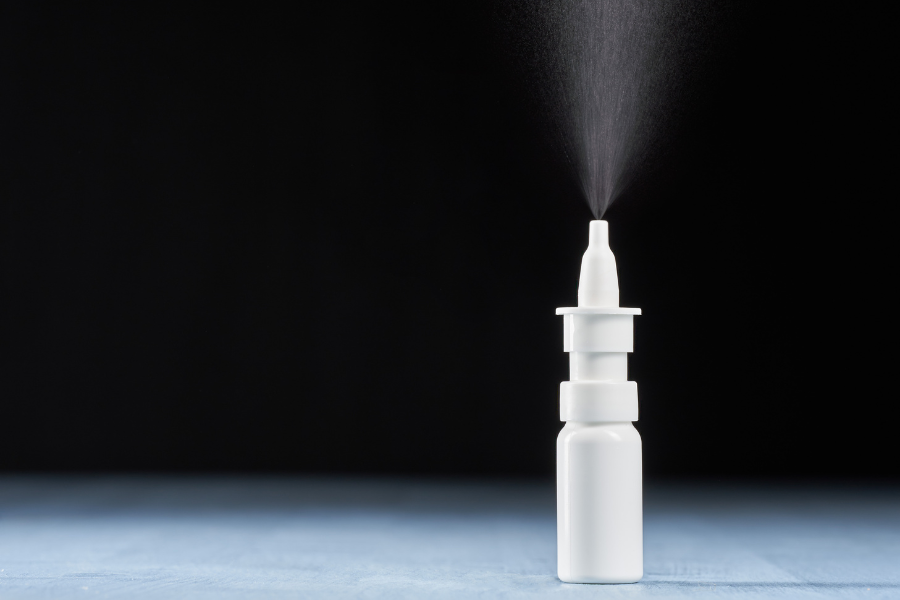What we Love About P-21 Nasal:
P-21 is a solid alternative to Cortexin [Link] and Cerebrolysin [Link] for neurodegenerative disorders that is simply a nasal spray versus injections. With that said, P-21 is newer, and less studied. Read on for more information.
Overview:
Peptides, small chains of amino acids, are well-known in the scientific community for their potent biological activities and significant implications for health and disease treatment. P-21 is one such peptide that has attracted interest recently. However, what is the P-21 nasal peptide and what are the advantages of using it? Let’s find out!
What is P-21 Peptide?
P-21 peptide, also known as P021, is a synthetic analog of ciliary neurotrophic factor (CNTF). Engineered through epitope mapping, P-21 is designed to mimic CNTF’s neurotrophic effects. Unlike CNTF, which directly binds to its receptor, P-21 functions by inhibiting molecules that neutralize CNTF. This unique mechanism promotes neurogenesis and cognitive functions by crossing the blood-brain barrier.
P-21 and Neurogenesis
Research indicates that P-21 can enhance neurogenesis—the growth and maturation of new neurons—in the hippocampus. The hippocampal region is essential for learning and memory. P-21 stimulates neural progenitor cells’ proliferation and supports their development into mature neurons, making it a promising nootropic peptide.
P-21 and Appetite Regulation
While direct studies on P-21’s impact on food intake are limited, there’s reason to believe it could act as an appetite suppressant. P-21 stimulates the synthesis of alpha-melanocyte-stimulating hormone (alpha-MSH), known to reduce food intake. Further research is needed, but the potential is intriguing.
How Does P-21 Work?
At the core of P-21 peptide’s bioactivity is its ability to modulate cellular signaling pathways, triggering a cascade of responses that contribute to its therapeutic effects. Here’s a closer look at how P-21 works.
Neuroprotection
P-21 peptide exhibits neuroprotective properties by promoting neuronal survival and reducing inflammation in the brain. It enhances synaptic plasticity and supports cognitive function, making it a promising candidate for treating neurodegenerative disorders such as Alzheimer’s disease.
Skin Regeneration
In dermatology, P-21 has shown significant potential for promoting skin regeneration and wound healing. By stimulating collagen synthesis and enhancing cellular proliferation, it accelerates tissue repair and improves the overall health and appearance of the skin.
Metabolic Regulation
Insulin sensitivity and glucose metabolism are two metabolic regulation systems that are impacted by P-21 peptide. This is relevant for metabolic disorders like diabetes and obesity, where P-21 may help manage symptoms and improve metabolic health.
Anti-inflammatory Effects
P-21 peptide exhibits anti-inflammatory properties by modulating immune responses and cytokine production, thereby reducing inflammation. This makes it valuable for conditions characterized by chronic inflammation, such as arthritis and inflammatory bowel disease.
Benefits of P-21 Nasal Peptide
The bioactive properties of the P-21 peptide offer a wide range of potential benefits across various domains. Key advantages identified in clinical studies include:
- Enhanced cognitive function and memory retention.
- Accelerated wound healing and tissue regeneration.
- Improved skin health and appearance, including reduced signs of aging.
- Regulation of metabolic processes, potentially aiding in weight management and glucose control.
- Reduction of inflammation and alleviation of symptoms associated with inflammatory conditions.
Conclusion
As medical science advances, our understanding of peptides like P-21 will undoubtedly grow, opening new avenues for treating and managing neurological conditions. The promising nature of the P-21 peptide could transform the landscape of cognitive enhancement and neuroprotection.
Stay tuned to scientific developments, as the future of P-21 and similar compounds in medicine holds many exciting possibilities. While the prospects are encouraging, thorough research and clinical trials are essential to fully establish the efficacy and safety of P-21 nasal peptide.
FAQ
Is P-21 a nootropic?
Yes, P-21 shows promise as a nootropic due to its neurogenesis-enhancing properties. By supporting the growth of new neurons, it may improve memory, learning, and overall cognitive abilities. Although further research is required, the first results are promising.
What forms is P-21 available in?
P-21 comes in two forms: nasal spray and injectable.
Are there side effects of P-21 nasal spray?
Due to limited research, specific adverse effects are not well-documented. If you are planning to include P-21 in your regimen, make sure to talk with a healthcare provider.
How does P-21 differ from CNTF?
P-21’s unique mechanism involves inhibiting molecules that neutralize CNTF, whereas CNTF directly binds to its receptor. Both play essential roles in neuroprotection and neurogenesis.
Does P-21 cross the blood-brain barrier?
Yes, P-21 can penetrate the blood-brain barrier, allowing it to exert its effects directly within the brain.
Get Started, Book a Free Consultation
Book a free 20-minute consultation to learn more about how this peptide can help you.




